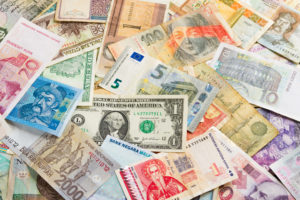Every few years I will read or hear or see something that changes a good chunk of my worldview. The book, World on Fire, by Amy Chua (yes, that Amy Chua, of Tiger Mom fame) did that by convincing me that for democracy to work it must be essentially home-grown. My going to the Cu Chi tunnels in Vietnam convinced me how deeply people hate being ruled by a foreign power. Ta-Nehisi Coates’ Atlantic Magazine article, The Case for Reparations, convinced me that America’s ~ 200 years of racism infuses and impacts today. Andrew Sullivan’s 1989 New Republic article convinced me to favor gay marriage. I was either leaning towards or vaguely “feeling” all these views before the readings/events above, but these things both crystalized and hammered them home.
The first thing I read today was a New York Magazine article entitled, It’s Time for Conscious Uncoupling With China, written by Andrew Sullivan (yes, the same Andrew Sullivan who so influenced my views on gay marriage 30 years ago). And this new Sullivan article is (for its first half) as clear, thoughtful, well-written, accurate and measured as his 1989 gay marriage article.
Sullivan begins by his article by discussing COVID-19’s overwhelming power and the deep impact it has and will have on the United States. He then segues into how impacts global trade and, in particular, trade with China:
It’s a brutal reality check, this thing — relentlessly ripping the veil off our delusions of control. So much is being laid bare. The promise of a truly globalized world, where government is increasingly international, and trade free, and all would benefit, was already under acute strain. Now, it’s broken, perhaps irrevocably.
The nation-state was beginning to reassert itself before, but COVID-19 has revealed its indispensability. Europeans realized, if they hadn’t already, that a truly continental response was beyond the E.U. Borders were suddenly enforced, resources hoarded by individual nations, and the most important decisions were made by national governments, in national interests. Americans, for their part, saw their own dependence on foreign countries, especially dictatorships, for core needs — like medicine, or medical equipment — as something to be corrected in the future. Japan is now spending a fortune paying its own companies to relocate from China to the homeland.
He then blames China’s intentionally brutal handling of the coronavirus for pretty much all of this:
And for both Europe and America, the delusions that sustained the 21st-century engagement with China have begun to crack. We still don’t know how this virus emerged — and China hasn’t given any serious explanation of its origins. What we do know is that the regime punished and silenced those who wanted to sound the alarm as early as last December, and hid the true extent of the crisis from the rest of the world. There had been 104 cases in Wuhan by December 31, including 15 deaths. Yet as late as mid-January, the Chinese were insisting, in the words of the World Health Organization, that there was “no clear evidence of human-to-human transmission.” On January 18, despite the obvious danger, the Chinese dictatorship allowed a huge festival in Wuhan that drew tens of thousands of people.
On January 23, President Xi locked down all air traffic from Wuhan to the rest of China — but, as Niall Ferguson pointed out, not to the rest of the world. It’s as if they said to themselves, “Well, we’re going under, so we might as well bring the rest of the world down with us.” This is not the behavior of a responsible international state actor. Trump’s ban on Chinese travel was better than nothing, but it did not prevent over 400,000 non-Chinese from arriving in the U.S. from China as COVID-19 was gaining momentum. It’s fair to say, I think, that after the immediate, unforgivable cover-up in China, a global pandemic was inevitable.
I’m not excusing Trump for his delusions, denial, and dithering — he is very much at fault — but the core source of the destruction was and is Beijing. Bringing a totalitarian country, which is herding its Muslim inhabitants into concentration camps, into the heart of the Western world was, in retrospect, a gamble that has not paid off. I remember the old debate from the 1990s about how to engage China, and the persuasiveness of those who believed that economic prosperity would lead to greater democracy. COVID-19 is the final reminder of how wrong they actually were.
I confess to have welcomed China into the family of nations. I advocated for China’s admission into the WTO back in 2000-2001, believing, like so many, that this would inevitably lead to China slowly but surely become more democratic. I saw China developing politically along the lines of a Taiwan or a South Korea. And for many years, China did get “better” and I would cheer it along while explaining to people both on this blog and elsewhere that so long as China was making progress, we needed to be patient. But the China of today is not the China of 2001 and those who will not admit to China’s backsliding on pretty much every measure of democracy and human rights are either lying to themselves or to us.
China cannot be integrated into the democratic world economy. Is there really any other way to look at a country that has put around two million people in concentration camps? I know all the arguments about how China — unlike so much of the West — has never sought to go beyond its own borders, but that is both untrue and irrelevant. China is today beyond its own borders in Tibet, in Xinjiang, in Mongolia, in Hong Kong and, yes, in Taiwan too. Not to mention China’s longstanding issues with Vietnam and the Philippines. China’s Belt and Road Initiative and its domination and co-option of world bodies like the WHO is imperialism by any other name.
Or as Sullivan says:
The Chinese dictatorship is, in fact, through recklessness and cover-up, responsible for a global plague and tipping the entire world into a deep depression. It has also corrupted the World Health Organization, which was so desperate for China’s cooperation it swallowed Xi’s coronavirus lies and regurgitated them. At the most critical juncture — mid-January — the WHO actually tweeted out Communist Party propaganda: “Preliminary investigations by the Chinese authorities have found no clear evidence of human-to-human transmission of the novel Coronavirus.” On the same day, another WHO official was telling the world that there was “limited spread” of COVID-19 by human-to-human transmission, and alerted hospitals about the risk of super-spreading the virus. And so the virus has forced us to accept another discomforting reality: Integrating a communist dictatorship into a democratic world economy is a mug’s game. From now on, conscious decoupling is the order of the day.
But instead of defining what conscious decoupling is or should look like, Sullivan veers off and compares the coronavirus to AIDS.
I love the term “conscious decoupling”, even though I do not know exactly what it means. I don’t think it means an immediate severing of all commercial ties with China as that would be both suicidal and impossible. Literally suicidal, as the world desperately needs PPE and China produces something like 88 percent of it. So decoupling there must be gradual. It also does not mean immediately blocking all other transactions with China as that too would be unwise and impossible. There are just too many Made in China products that will take years to be made elsewhere at anything approaching the same costs.
What then does it mean? Probably more importantly, what should it mean and what should it look like?
Should we boycott everything China? I vote no (for now) because it is unrealistic to ask someone just rendered unemployed by the coronavirus to spend way more on non-Chinese products. I also think it too early to penalize foreign companies that make their products in China. A large part of my law firm’s business these days is helping foreign companies move their China manufacturing to another country and so I can tell you that this is never easy nor fast. See How to Move Your Manufacturing From China: Rule One, Be Careful. I can also tell you that nearly all our clients who manufacture in China want out of China and are doing what they can to try to that happen. They are cognizant of growing anger with China and how this has and will impact their businesses both within China and worldwide. China’s increasingly bad treatment of foreigners does not exactly make them want to stay either. Should we consciously try to choose products not made in China over those that are? I give a somewhat reluctant yes to this.
Getting countries (like Japan, to which Sullivan cites above) to subsidize their companies leaving China is a good start, and there is increasing talk about the U.S doing something similar. Selective and gradual tariffs on goods that are being competitively made in countries other than China would be good too. Do we boycott the Beijing Winter Olympics? I lean towards this but I also remember how my law school friend, Rudy Chapa, never got to participate in the Olympics because of the 1980 boycott, and it pains me to penalize the athletes. A tourism boycott? I guess so.
So maybe that’s what conscious decoupling means; it’s a sort of crossing the river by feeling the stones or I know it when I see it sort of thing. It’s a “let’s discuss what we should do and start doing it” sort of thing. But that means we need to do that. So please chime in below with your comments, and let’s move this discussion along everywhere else as well. Let’s figure out how to consciously decouple from China. Now.
NOTE: I know many will view my posting a picture of the Nazi Olympics above as inflammatory and so I feel some explanation of that choice is warranted.
I do not see the CCP as the equivalent of the Nazis. Not today, anyway. But I do see the way the world has been responding to China as not too dissimilar from how it responded to Nazi Germany in 1936. The ten stages of genocide is widely considered as the best way to predict (and hopefully prevent) a genocide and I defy anyone to read about those ten stages and then claim China is not nearing a genocide in Xinjiang. Nearing a genocide does not mean a genocide will happen, but it does up the odds and it does mean that we need to be acting to try to prevent it.

























